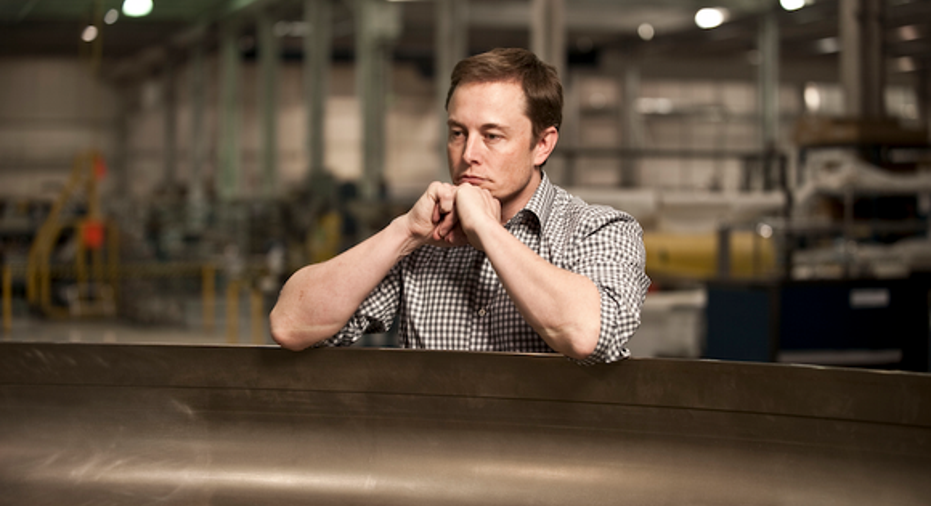Why the Media Loves Tesla and Hates Apple

I bet you didn’t realize that Apple is in such deep trouble, it’s on the verge of going the way of BlackBerry. If that strikes you as a bit far-fetched, you’ll be downright shocked to learn that Tesla’s proposed acquisition of Solar City can create a juggernaut that disrupts America’s power grid and transforms the entire energy sector.
You’ve got to wonder what’s next, Amazon making same-day drone deliveries right to your door on Mars?
That last story is made up, but is it really that much less plausible than the other two, which, by the way, actually appeared in respected business publications? After all, none of the three have any real likelihood of occurring, at least not within a reasonable timeframe.
For as far back as I can remember, the media – tech journalists in particular – have consistently bought into what I see as complete fiction by masters of hyperbole like Elon Musk. At the same time, it seems as if they’ve chosen to ignore undoubtable truths, such as their total lack of visibility into what goes on behind the scenes at super-secretive companies like Apple.
Why is that? Why does the media hate Apple and love Tesla? And generally speaking, why is there so much nonsensical tech content?
What is it about today’s journalists that makes it so easy to accept the notion that, since Siri currently resides on Apple devices instead of in the cloud, where digital assistants from Amazon and Google live, then the Cupertino tech giant must be in complete denial about artificial intelligence (AI) and is therefore doomed to BlackBerry’s fate?
The comparison is ludicrous on its face.
Blackberry once dominated the nascent smartphone market. When Apple’s iPhone launched, company co-founders Mike Lazaridis and Jim Balsillie were caught flatfooted and dumbfounded. The pair openly ridiculed the newcomer’s full-sized multi-touch display and virtual keyboard. Besides, who needs an integrated music player or an app store?
It was the mother of all denial and went on for five long years. When the co-CEOs finally agreed to step down, the Kool-Aid drinking disciple they appointed to succeed them, Thorsten Heins, actually said, “I don’t think there is some drastic change needed.” He did finally come to his senses, but by then, it was far too late. Blackberry was all but dead.
While I agree that smart assistants are far smarter and more useful when they have access to user information stored in the cloud – search history, buying patterns, communication and location data – not everyone is willing to sacrifice their privacy and security for that additional level of convenience.
Besides, Apple just opened Siri to third-party developers. Maybe it will add an opt-in feature to move its personal assistant to the cloud down the road. Who knows? One thing’s for sure: it’s still very early days for AI. And since Apple keeps pretty tight-lipped about its plans, nobody knows what it will do until it does it.
As for the Tesla story, how does a journalist indulge propaganda that has a better chance of being delusional hyperbole than plausible reality and maintain credibility? Let’s get real, folks. What Musk suggested as justification for his proposed Solar City buyout before Brexit came along and distracted everyone was ludicrous to the extreme.
Or has everyone already forgotten that the merger of two companies with combined annual revenues of $4.4 billion, tons of red ink, and massive and growing debt is somehow going to turn Tesla into the world’s first $1 trillion company by market cap. Sure, it could happen. So could the drone delivery service to your home on Mars.
Here’s my understanding of how Tesla becomes an energy giant. The vaunted Tesla brand and showrooms will provide an Apple Store-like experience for mass consumer adoption of leased rooftop solar arrays. Tesla will also make and bundle battery systems for storage and create its very own energy service network that will sell electricity back to power utilities.
And let’s not forget about designing the Model 3 and ramping up manufacturing and Lithium Ion battery assembly to turn a little luxury car company into a profitable mainstream supplier of affordable electric vehicles to the masses. You know, the next step in Tesla’s business model it has yet to execute.
Never mind the enormous capital, financial, regulatory and scaling hurdles all this represents. And by the way, there are more than a few very large car, battery and energy companies (Toyota, Panasonic and Exxon Mobile, to name a few) that aren’t exactly going to lay down and play dead, should any of this actually start to take off.
Back to the original question about Apple and Tesla, the media loves underdogs and hates giants. As for all the nonsensical tech content, that, we can’t hang on the journalists, but the miracle of the interactive Web. We click, like and tweet. Ads sell products. Rinse and repeat. Simple as that.



















